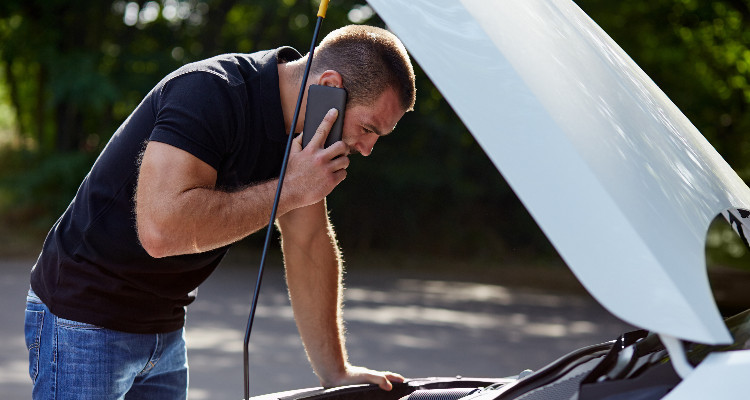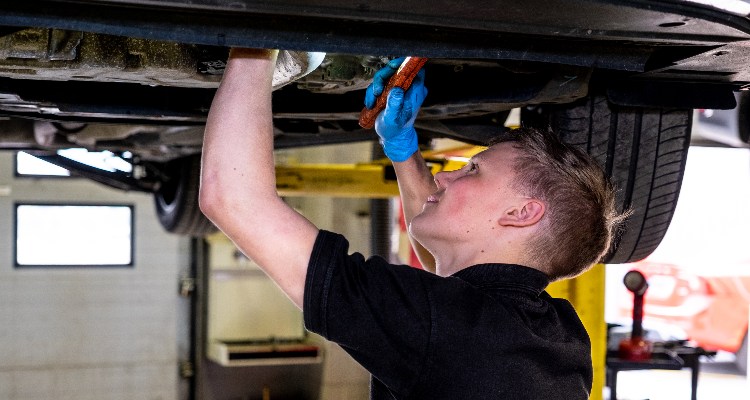There are a few ways in which we try to protect ourselves from unexpected and expensive costs in relation to our vehicles.
Car insurance is by far the most important – not least as it’s illegal to drive without it – but having a car warranty is also a key method in covering ourselves as drivers.
But what exactly is a car warranty, and how does one help us in our time of need?
What is a car warranty?

You can see a car warranty as a type of insurance – but instead of covering you in the event of an accident, a car warranty covers you in instances of mechanical failure.
This means that, under certain circumstances, the cost of any repairs and replacement parts would be mostly or completely covered under the warranty.
Not every type of fault or failure is covered by a warranty, but for many instances, as long as your warranty is valid, you’ll be spared the cost of labour and parts.
Car warranties typically last three years from when the car was brand new, but larger warranties do exist, and you can also buy them separately or extend an existing warranty.
There are also differences between warranties offered by manufacturers and those sold by dealers or other third parties.
How does a car warranty work?
Your car’s warranty comes into play in the instance of a mechanical failure or breakdown.
If such a circumstance occurs, you will need to book your car into a garage that’s able to undertake any work that’s in-line with your warranty.
For instance, if you have a valid manufacturer warranty on your Hyundai, then you’ll likely need to take your car to a Hyundai garage for any repairs and official parts.
Or, maybe you have a warranty from the dealer you bought the car from – in this instance, it’s likely you’ll have to use one of their garages for any work to be completed.
It’s important to know such aspects of your warranty beforehand, as well as what exactly is covered by your warranty, as this can differ between policies.
You’ll also need to act in a timely manner when something goes wrong with your car, as most policies require you to claim for any required repairs within a certain timeframe.
If you keep driving your car that has an obvious fault, you could invalidate your warranty.
Once your car is with the respective garage, the work will be totalled up and you’ll be made aware of how much will be covered by the warranty, and if there’s anything you need to pay for yourself.
From there, the work will be carried out and you’ll get your car back when it’s all completed.

Keeping your warranty valid
Another very pertinent element to a car warranty is keeping it valid – this is especially the case when it comes to a manufacturer warranty.
With a manufacturer warranty, you’ll need to ensure that you keep to your servicing schedule – you may also need to go to a manufacturer garage to get it serviced, though some brands allow you to service independently as long as official, genuine parts are used.
Some third-party providers also require that your car is kept up to a certain standard, and by a reputable dealer or establishment.
Keeping an eye on your mileage is also important when it comes to ensuring your warranty stays valid.
While car warranties will run for a number of years, they will also typically come with a mileage limit – as such, you may come across a warranty that lasts three years or 60,000 miles; whichever comes first.
A warranty can also be invalidated in the following ways:
- Continuing to use the vehicle even when there’s an obvious mechanical fault
- Making certain modifications to the vehicle
- Putting in the wrong fuel or other fluids
- Not following the correct warranty claim procedure
What does a car warranty cover?
A warranty will typically cover such aspects as:
- Engine
- Fuel system
- Gearbox and clutch
- Steering
- Brakes
- Electrical systems (including in-car entertainment)
- Air conditioning
However, as mentioned, it’s very important to check what your warranty covers exactly so that you know where you stand in certain circumstances.
Meanwhile, items that are susceptible to wear and tear, or are considered consumables, will not be covered by a car warranty.
Keep in mind that there will be a limit as to how much cost can be claimed by the warranty, and anything beyond that point will need to be covered by yourself.

Different types of car warranties
While many will relate warranties with brand-new cars, you can get a warranty for your vehicle at pretty much any time, but there can be differences between them.
Manufacturer (new car) warranty
Whenever you purchase a brand-new car, it will always come with a manufacturer warranty.
Most such warranties last three years and around 60,000-100,000 miles, but there are exceptions:
As mentioned, manufacturer warranties need you to stick to the parameters set beforehand to ensure it stays valid.
Used car warranty
Getting a warranty for a used car is something you’ll usually have to do yourself – brand-new cars automatically come with a warranty.
A warranty for a used car will typically have limits on how old the vehicle is, and also how many miles it has done.
For instance, you would likely be hard-pressed to get a warranty on a car that’s older than 10 years and has more than 100,000 miles on the clock.
A warranty for a used car can often be bought as part of the overall purchase of the car, much like you can here at Stoneacre.
Some used car warranties can be different in terms of cover, with some covering only certain aspects, while a more comprehensive policy will cover you for much more.
If you are lucky, however, you may be able to find a car for sale which still has a portion of its original manufacturer’s warranty intact, as this gets passed over to the next owner.
In other circumstances, you may be able to get a warranty extension once your car hits a certain age.
For example, if you have a Toyota, and you get a qualifying service each year, you’ll get a 12-month, 10,000-mile warranty – this can be done for up to 10 years or 100,000 miles, whichever comes first.
Are car warranties worth it?
One of the main draws to purchasing a new car is that they come with a minimum three-year warranty, giving you peace of mind from when you first drive away.
With that in mind, sometimes it can be seen as a worthwhile endeavour to spend a bit more and go for a brand-new car which comes with a warranty.
When it comes to used cars that have already got a few thousand miles on the clock, having a warranty in place can feel like a big safety blanket if anything were to go wrong.
Spending a bit of money to get you covered for costs that could run into the thousands might just feel like a weight off your shoulders.




